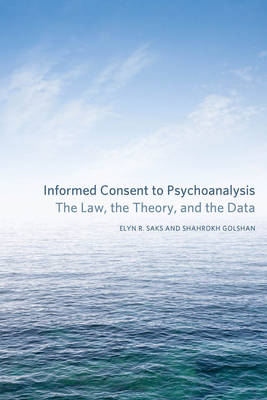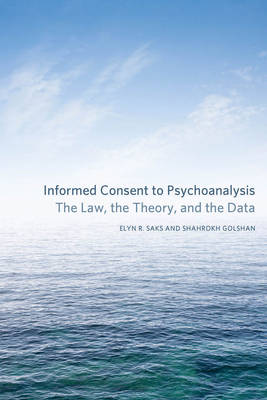
Je cadeautjes zeker op tijd in huis hebben voor de feestdagen? Kom langs in onze winkels en vind het perfecte geschenk!
- Afhalen na 1 uur in een winkel met voorraad
- Gratis thuislevering in België vanaf € 30
- Ruim aanbod met 7 miljoen producten
Je cadeautjes zeker op tijd in huis hebben voor de feestdagen? Kom langs in onze winkels en vind het perfecte geschenk!
- Afhalen na 1 uur in een winkel met voorraad
- Gratis thuislevering in België vanaf € 30
- Ruim aanbod met 7 miljoen producten
Zoeken
€ 151,45
+ 302 punten
Omschrijving
The goal of this book is to shed psychoanalytic light on a concept--informed consent--that has transformed the delivery of health care in the United States.
Examining the concept of informed consent in the context of psychoanalysis, the book first summarizes the law and literature on this topic. Is informed consent required as a matter of positive law? Apart from statutes and cases, what do the professional organizations say about this? Second, the book looks at informed consent as a theoretical matter. It addresses such questions as: What would be the elements of a robust informed consent in psychoanalysis? Is informed consent even possible here? Can patients really understand, say, transference or regression before they experience them, and is it too late once they have? Is informed consent therapeutic or countertherapeutic? Can a "process view" of informed consent make sense here? Third, the book reviews data on the topic. A lengthy questionnaire answered by sixty-two analysts reveals their practices in this regard. Do they obtain a statement of informed consent from their patients? What do they disclose? Why do they disclose it? Do they think it is possible to obtain informed consent in psychoanalysis at all? Do they think the practice is therapeutic or countertherapeutic, and in what ways? Do they think there should or should not be an informed consent requirement for psychoanalysis? The book should appeal above all to therapists interested in the ethical dimensions of their practice.Specificaties
Betrokkenen
- Auteur(s):
- Uitgeverij:
Inhoud
- Aantal bladzijden:
- 142
- Taal:
- Engels
- Reeks:
Eigenschappen
- Productcode (EAN):
- 9780823249763
- Verschijningsdatum:
- 19/02/2013
- Uitvoering:
- Hardcover
- Formaat:
- Genaaid
- Afmetingen:
- 152 mm x 229 mm
- Gewicht:
- 353 g

Alleen bij Standaard Boekhandel
+ 302 punten op je klantenkaart van Standaard Boekhandel
Beoordelingen
We publiceren alleen reviews die voldoen aan de voorwaarden voor reviews. Bekijk onze voorwaarden voor reviews.









